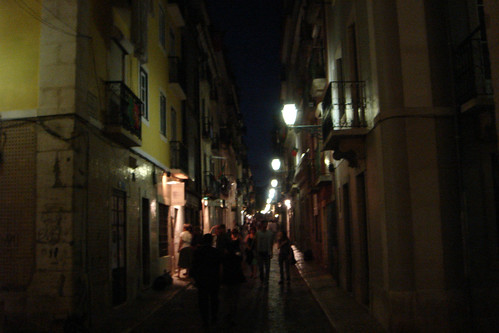Standing at the nightclub this evening, my eyes are scanning the crowd. going from face to face.. I keep asking myself.. do I see any differences.. between these kids and the kids in amsterdam.. or the kids in lisbon.. or the kids in new jersey?
Most would say there is no difference. They dress the same. They drink the same. They party the same. (?)
But I always see one difference. History. The history, not so much of these children per se, but that of their families. My mind starts wondering all sorts of crazy questions… how many of their parents were in the military… fighting in the war against Yugoslavia/Serbia, a bit more than a decade ago. How many have gandparents who can tell stories of Yugoslavia under Tito, or world war II when the Germans invaded. Each of these kids has a family history that would probably blow my mind. Yet here I am, having a drink side by side with them, and they seem less obsessed with the turns of history than I am.
I think it is truely interesting to be living in an ex-anything. Ex- GDR in Germany, ex-Soviet Union in Estonia, ex-Indochina in Vietnam, and yes.. Ex-Yugoslavia in Croatia. I guess every place on earth can claim to be an ex-something.. but being at a recently turned EX, I somehow see it in every piece of sidewalk or trainstation. A combination of an over active imagination and a quest to know as much history as possible, crammed into a few late night reading sessions and conversations with kind locals.
Eventually the boom-boom-boom of what seems like the same DJ Ive seen all my life broke me out of my deep thoughts. Time to move on, brave the below zero temperatures, and head back to this warm hotel.
Day 2…. done.

 The interesting conversation over dinner is my topic for today. This evening, as I had just wandered back to Lisbon for some relaxing. Got called to dinner with JP and his very worldly family. Both his parents are very well schooled in History, just as he is, so naturally everything has its historical context… even things I’d never considered.
The interesting conversation over dinner is my topic for today. This evening, as I had just wandered back to Lisbon for some relaxing. Got called to dinner with JP and his very worldly family. Both his parents are very well schooled in History, just as he is, so naturally everything has its historical context… even things I’d never considered. 